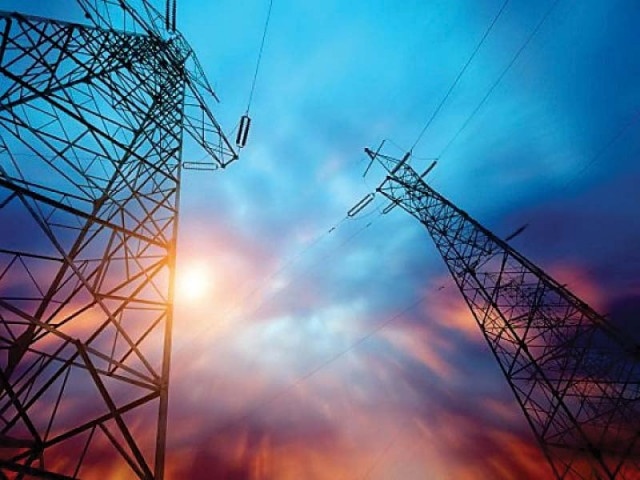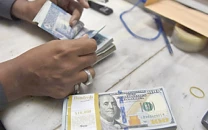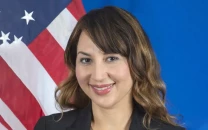ECC defers increase in electricity prices
Agreement could not be reached on passing on full impact of theft, bad policies

It could be a politically unpopular move to increase electricity prices by up to 61% after recent increase in gas prices by up to 143%. Both these measures, along with the imposition of regulatory duties in the budget, have inflationary implications. PHOTO: FILE
The Economic Coordination Committee (ECC) of the cabinet deferred the summary for increase in electricity prices after Finance Minister Asad Umar objected to the tariff determination formula, said officials who attended the meeting.
Umar, who is the ECC chairman, sought a clear roadmap for the reduction in losses and improvement in the recovery of bills before the ECC gave its nod for the increase in prices.
The consideration of the Ministry of Power’s proposal for a notification of the National Electric Power Regulatory Authority’s (Nepra) determined tariff was delayed until finalisation of a comprehensive plan for the improvement of service delivery, according to a statement issued by the finance ministry after the meeting.
The ECC directed Nepra and the Power Division to reconcile their figures to realise whether the Rs135-billion impact of inefficiencies was a one-off increase or it would also reflect in future tariffs, said officials.
The finance minister opposed the idea of passing on the Rs135-billion cost of previous years’ inefficiencies to the end-consumers.
The Power Division recommended a 15% to 61.2% increase in electricity prices for domestic consumers. It sought a minimum increase of Rs1.22 per unit to Rs5.7 per unit.
Its proposal showed that the maximum burden would be passed on to the domestic consumers who use time-of-use (TOU) meters. The average increase in electricity prices for domestic users will be 33%, which will push the prices up from average Rs11.5 to Rs15.3 per unit.
The Power Division worked out these average uniform tariffs while adjusting subsidies worth Rs166 billion in the tariffs determined by Nepra. The Power Division did not propose any increase in tariff for lifeline and agriculture consumers. It also suggested a minimum subsidy Rs3 per unit for industrial consumers to keep their tariffs at regionally competitive rates of 7.5 US cents per unit.
The sound financial health of the power sector depends on the transfer of full cost of generation, transmission and distribution, determined and recommended by Nepra, to the ultimate users of electricity.
It could be a politically unpopular move to increase electricity prices by up to 61% after recent increase in gas prices by up to 143%. Both these measures, along with the imposition of regulatory duties in the budget, have inflationary implications.
Proposal for domestic consumers
The Power Division proposed that off-peak tariffs for domestic consumers may be increased from Rs9.3 per unit to Rs15, an increase of 61.2% or Rs5.7 per unit. Similarly, the peak tariff for domestic consumers has been proposed to be increased by 30.3% or Rs5 per unit to Rs21.60.
For the category of consumers using up to 100 units per month, the Power Division has proposed a 15% increase in prices to Rs6.66 per unit. For those who use up to 200 units, the government has recommended a 24% increase, suggesting a new price of Rs9.33 per unit.
For consumers of up to 300 units, the government has proposed around 20% increase and suggested a price of Rs12.24 per unit. For consumers using up to 700 units, the government has proposed a 26% increase and recommended a price of Rs19.2 per unit.
For the highest slab of consumers using more than 700 units in a month, the government has recommended a price of Rs21.68 per unit.
The Power Division presented uniform tariffs for the approval of ECC, which were based on consolidated revenue requirements, approved and determined by Nepra for power distribution companies.
Sources said the finance minister objected to the inclusion of inefficiency cost, past arrears, theft and capacity payments in the new tariffs. They said Rs2.18-per-unit or 19% increase in prices was because of the impact of capacity payments and net hydel profit.
The remaining roughly Rs1.62-per-unit increase, which comes to around 14%, was on account of other factors, which have to be passed on to consumers, sources added.
In case, the government decides against passing on the impact of inefficiency and delayed determination of previous tariffs, the finance ministry will have to give an additional subsidy of at least Rs100 billion, the sources said.
This will push the overall power subsidies to close to Rs210 billion in the current fiscal year 2018-19. However, the finance ministry did not have this much fiscal space due to increasing cost of debt servicing that is now eating up 35% of the total budget.
Secondly, in case Pakistan decides to avail a bailout programme, the International Monetary Fund will also oppose the idea of giving huge power subsidies, particularly to consumers who do not fall in the lifeline category.
Commercial consumers
The Power Division has proposed Rs21.06-per-unit price for commercial consumers using above 5 kilowatts. For regular commercial consumers, the new proposed rate is Rs19.68 per unit.
For TOU commercial consumers, the new peak rate is proposed at Rs21.60 per unit and off-peak rate at Rs15.63 per unit.
Published in The Express Tribune, September 26th, 2018.
Like Business on Facebook, follow @TribuneBiz on Twitter to stay informed and join in the conversation.



















COMMENTS
Comments are moderated and generally will be posted if they are on-topic and not abusive.
For more information, please see our Comments FAQ